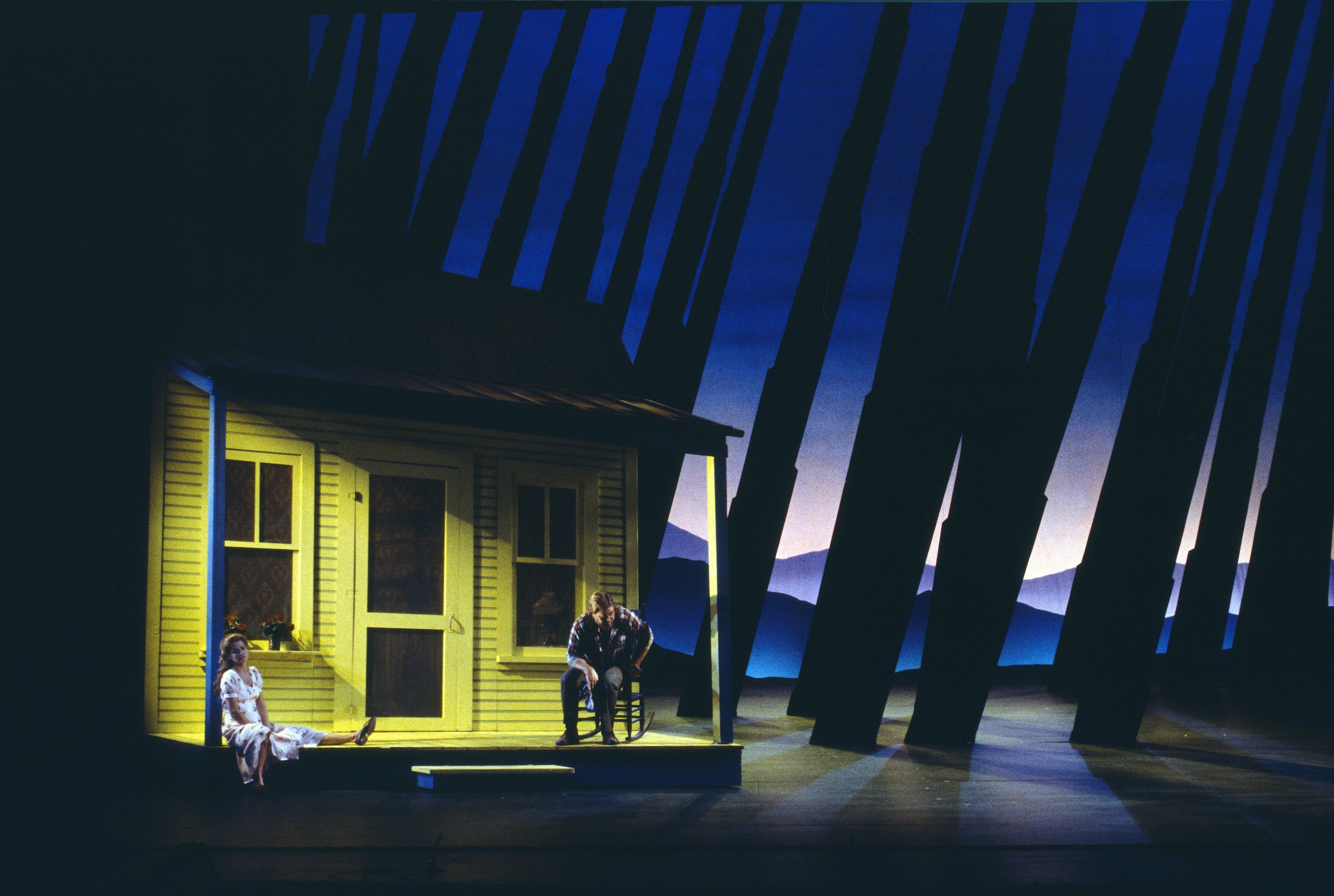
“Ain’t it a pretty night
The sky’s so heavy with stars tonight
That it could fall right down
out of heaven”
Nancy Gustafson (left) as Susannah Polk and Mark Baker (right) as Sam Polk in Susannah
Houston Grand Opera, 1996
PHOTO: JIM CALDWELL
Susannah
(1953-54) 105’
A musical drama in two acts
Text Libretto by the composer, based on the story “Susannah and the Elders” from the Apocrypha
Scoring Major roles: S, T, BBar Minor roles: 2S, M, A, 3T, 2Bar; chorus; dancers
2.2.2.2-4.2.3.1-timp.perc-cel-harp-strings
Version for reduced orchestra available:
2.1.2.1-2.2.2.0-timp.perc-harp-strings
Written during the McCarthy era, Susannah is loosely based on the Apocryphal tale of “Susannah and the Elders”. The opera centers on a young and innocent woman of humble origins who is targeted as a sinner in a small mountain town of New Hope Valley in Tennessee. Floyd embraced folk music and Broadway influences— a vibrant and unexpected choice in the 1950s, when American serious composition was exclusively concerned with German expressionism. Conductor Patrick Summers explains, “Carlisle was one of the people who started to meld the worlds of musical theatre and opera. He made it okay to tell American stories in an American idiom.”
Susannah was chosen to represent American music and culture at the World’s Fair at Brussels in 1958, with a production by Frank Corsaro that featured Phyllis Curtin and Norman Treigle. Today, Susannah is one of the most performed American operas, and has come to symbolize the American voice in opera.
Notable Moment: “Ain’t it a pretty night?”
Susannah (soprano), Act I, Scene 2
Affectionately referred to as “the soprano’s national anthem,” this ravishing piece is arguably the best known of Floyd’s arias, and frequently excerpted to sing on stage with orchestra or in recital. Phyllis Curtin once stated, “It is perhaps one of the most natural expressions of anything I ever sang.” The beautiful young Susannah Polk sings the touchingly innocent aria to the night sky and dreams of her future beyond her home in New Hope Valley— all the more poignant considering the events that follow.
Samuel Ramey (left) as Rev. Olin Blitch and Renée Fleming (right) as Susannah Polk in Susannah
Lyric Opera of Chicago, 2002
PHOTO: DAN REST PHOTOGRAPHY
“Carlisle Floyd’s greatest achievement, to me, was in forging an American musical language for opera. His landmark works Susannah and Of Mice and Men are rooted in American folk music and culture, while rising in expressive power alongside the grandest works of the lyric stage, earning a permanent place in the American canon. I was fortunate to sing Susannah at Lyric Opera of Chicago, and in the work’s Metropolitan Opera premiere, early in my career. Singing in English on stage was a rarity for me then, unlike now. Carlisle brought these characters to life, drawn richer and fuller in music, as Thomas Hart Benton did in paint.”
— Soprano Renée Fleming

